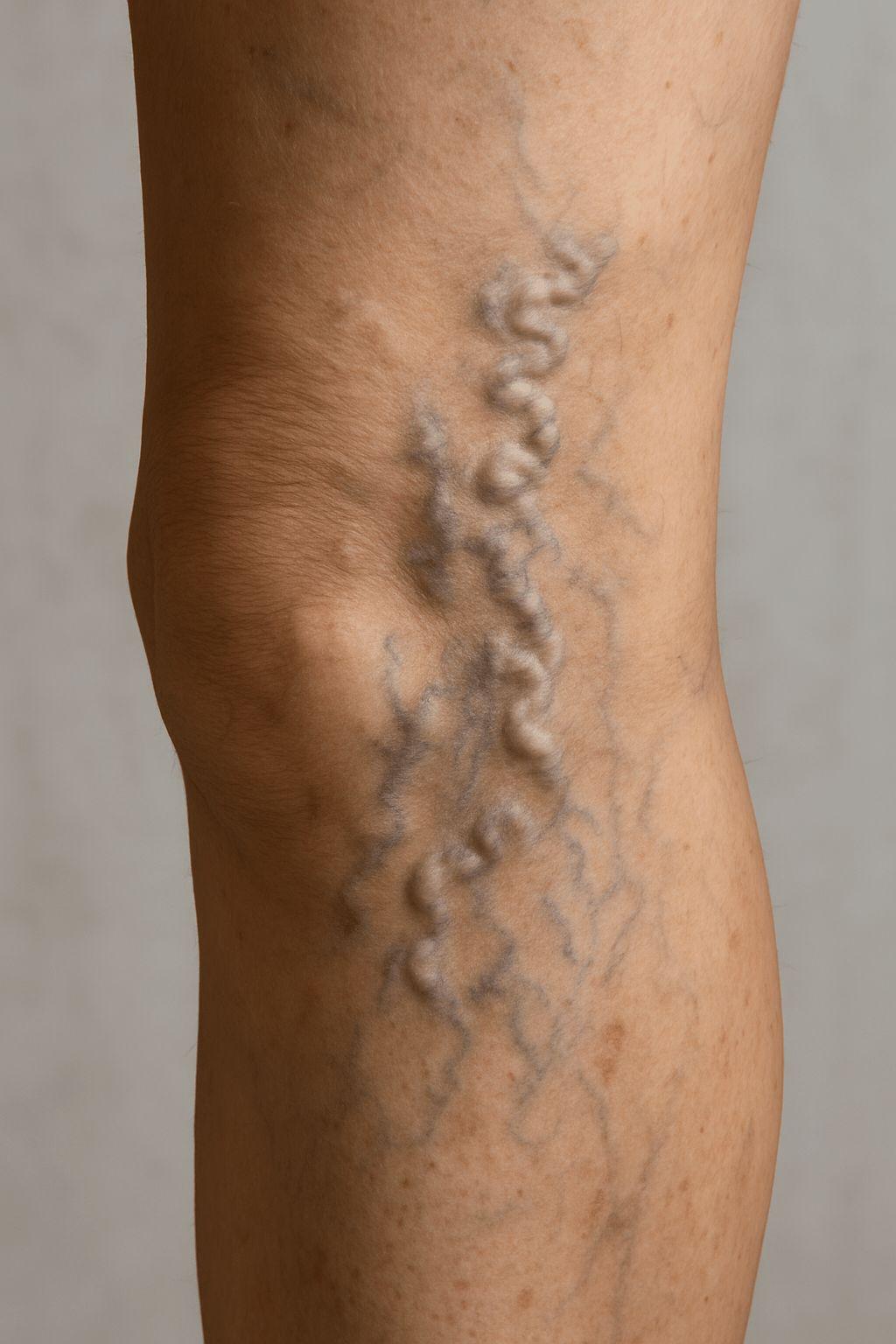Can Varicose Veins Impact Circulation and Heart Health?

Varicose veins are more than just unsightly bulging veins; they can signal underlying circulatory problems. Many people often wonder if these twisted, swollen veins are purely cosmetic or if they can affect overall heart health. Understanding the connection between varicose veins and circulation is essential for identifying potential risks early.
The Varicose Veins Treatment options have advanced significantly in recent years, providing solutions not only for cosmetic concerns but also for improving circulation and preventing complications. Modern treatments aim to reduce vein swelling, improve blood flow, and mitigate risks associated with cardiovascular issues. But how exactly do varicose veins influence circulation and heart health? Let’s explore this in detail.
Understanding Varicose Veins and Circulation
What Are Varicose Veins?
Varicose veins are enlarged, twisted veins most commonly found in the legs and feet. They occur when the valves in the veins malfunction, causing blood to pool instead of flowing efficiently back to the heart. This condition is often associated with venous insufficiency, a condition where veins struggle to return blood to the heart, potentially affecting overall circulation.
How Varicose Veins Affect Blood Flow
When veins fail to function properly, blood circulation slows down, which may cause swelling, discomfort, and fatigue in the legs. Poor circulation can sometimes contribute to more serious conditions such as chronic venous insufficiency or even increase the risk of deep vein thrombosis (DVT). Understanding these risks highlights why timely intervention with Varicose Veins Treatment is crucial.
Common Causes and Risk Factors
Genetic Predisposition
Family history plays a significant role. If your parents or grandparents had varicose veins, you are at a higher risk of developing them. Genetics can influence the strength of vein walls and the effectiveness of vein valves.
Lifestyle and Occupation
Sedentary lifestyles, prolonged standing or sitting, obesity, and lack of physical activity can contribute to vein problems. High-impact activities may also exacerbate existing varicose veins.
Hormonal Changes
Pregnancy, menopause, and hormonal treatments can weaken vein walls and valves, making varicose veins more likely to develop. Women are particularly at risk due to hormonal fluctuations.
Symptoms That Signal Circulatory Issues
Physical Signs
-
Swollen or heavy legs
-
Pain or aching in the lower limbs
-
Visible bulging veins
-
Skin discoloration around the ankles
Complications to Watch
Untreated varicose veins can lead to skin ulcers, blood clots, and in severe cases, affect overall heart health due to increased circulatory strain. Recognizing these symptoms early is key to preventing complications.
Varicose Veins and Heart Health
How Circulation Is Linked to the Heart
Varicose veins indicate that your veins are struggling to return blood efficiently to the heart. Over time, this can put extra strain on your cardiovascular system, particularly if combined with other risk factors like hypertension, obesity, or sedentary habits. Poor venous circulation may lead to reduced oxygenation in tissues, increasing the risk of cardiovascular issues.
Can Varicose Veins Cause Heart Problems?
While varicose veins themselves rarely cause direct heart disease, they can indicate underlying venous insufficiency, which affects circulation. If ignored, the pooling of blood and formation of clots could pose risks to heart health indirectly. Early diagnosis and treatment are essential.
Modern Varicose Veins Treatment Options
Non-Surgical Approaches
-
Compression Therapy: Special stockings help improve blood flow.
-
Lifestyle Modifications: Regular exercise, maintaining a healthy weight, and elevating legs.
-
Medication: Anti-inflammatory and circulation-boosting medications may help alleviate discomfort.
Minimally Invasive Procedures
-
Endovenous Laser Therapy (EVLT): Uses laser energy to seal problematic veins.
-
Sclerotherapy: Injection of a solution to close the vein.
-
Radiofrequency Ablation (RFA): Heat-based treatment to close varicose veins.
Pros and Cons of Each Treatment
| Treatment Method | Pros | Cons |
|---|---|---|
| Compression Therapy | Non-invasive, easy to use | Requires continuous use, not permanent |
| Lifestyle Modifications | Improves overall health | Slow results, requires discipline |
| EVLT | Minimally invasive, effective | May require local anesthesia, costs vary |
| Sclerotherapy | Quick, minimal downtime | Not suitable for large veins |
| RFA | High success rate, less pain | Mild bruising, may need follow-up |
Comparison Table of Non-Surgical vs Surgical Treatments
| Feature | Non-Surgical | Surgical/Minimally Invasive |
|---|---|---|
| Recovery Time | Days to weeks | Few days to a week |
| Effectiveness | Moderate | High |
| Pain Level | Low | Moderate |
| Risk of Recurrence | Higher | Lower |
| Suitable For | Mild to moderate cases | Moderate to severe cases |
Lifestyle Tips for Better Circulation
Daily Habits
-
Walk or stretch regularly to improve blood flow.
-
Elevate legs whenever possible.
-
Avoid prolonged sitting or standing.
Diet and Nutrition
-
Foods rich in antioxidants, flavonoids, and vitamin C can strengthen veins.
-
Reduce salt intake to prevent water retention and swelling.
FAQs:
Can untreated varicose veins lead to heart problems?
While varicose veins rarely directly cause heart disease, untreated veins can worsen circulation, increasing cardiovascular strain over time.
Are there permanent solutions for varicose veins?
Minimally invasive procedures like EVLT and RFA offer long-lasting results, but lifestyle changes are essential to prevent recurrence.
Can exercise help prevent varicose veins?
Yes, regular low-impact exercises like walking, swimming, or cycling improve circulation and reduce the risk of developing varicose veins.
Are compression stockings effective for circulation?
Compression stockings help improve blood flow and reduce swelling, but they are more effective when combined with other treatments.
Conclusion
Varicose veins are not merely cosmetic concerns; they can reflect underlying circulatory issues that, if ignored, might indirectly impact heart health. Effective Varicose Veins Treatment options—including compression therapy, lifestyle modifications, and minimally invasive procedures—can significantly improve blood flow, reduce discomfort, and enhance overall cardiovascular wellness. Understanding the signs and seeking early treatment is crucial for maintaining long-term circulatory and heart health.
If you are experiencing symptoms or want to explore the best Varicose Veins Treatment options, consult Royal Clinic Saudia today and take the first step toward healthier circulation and a more comfortable life.





